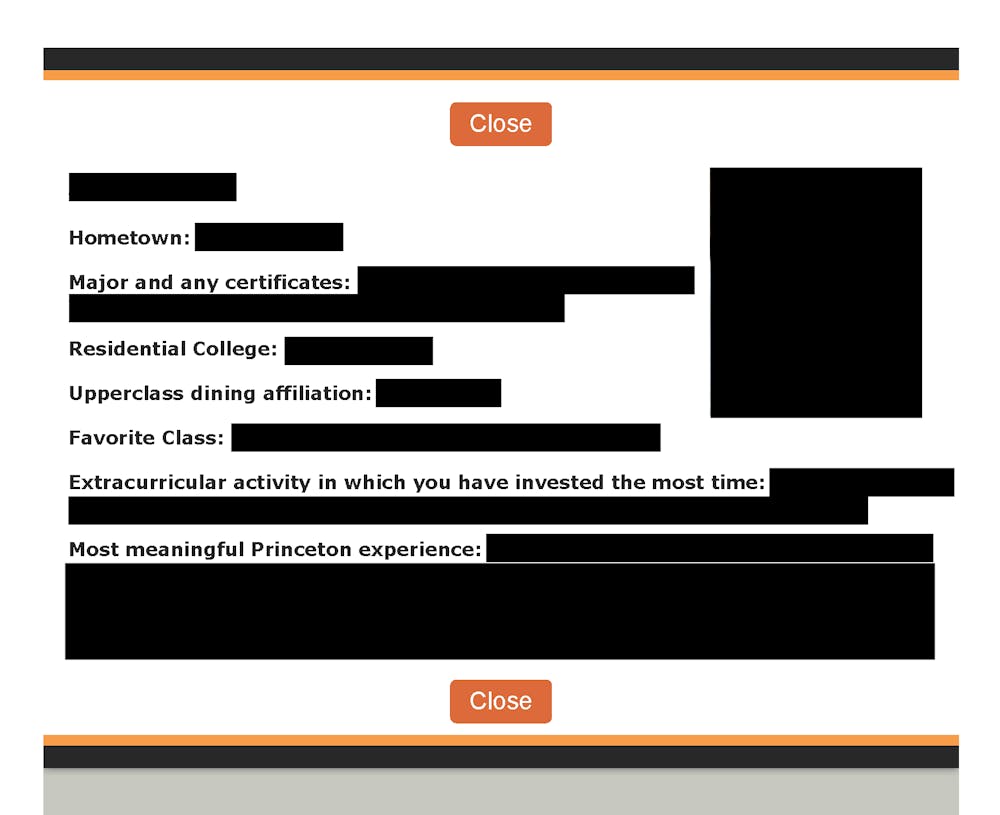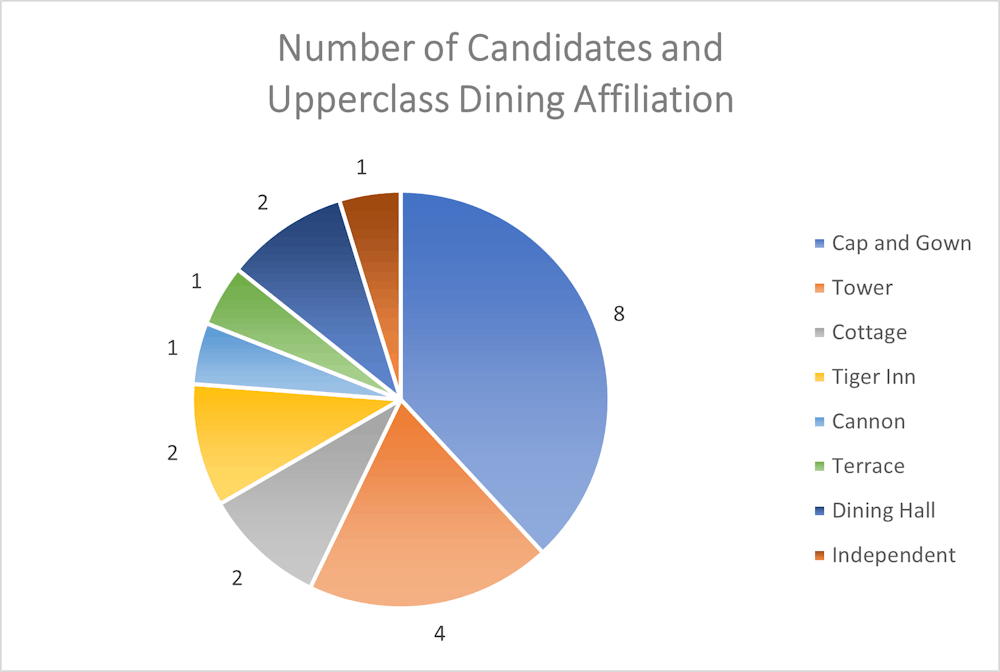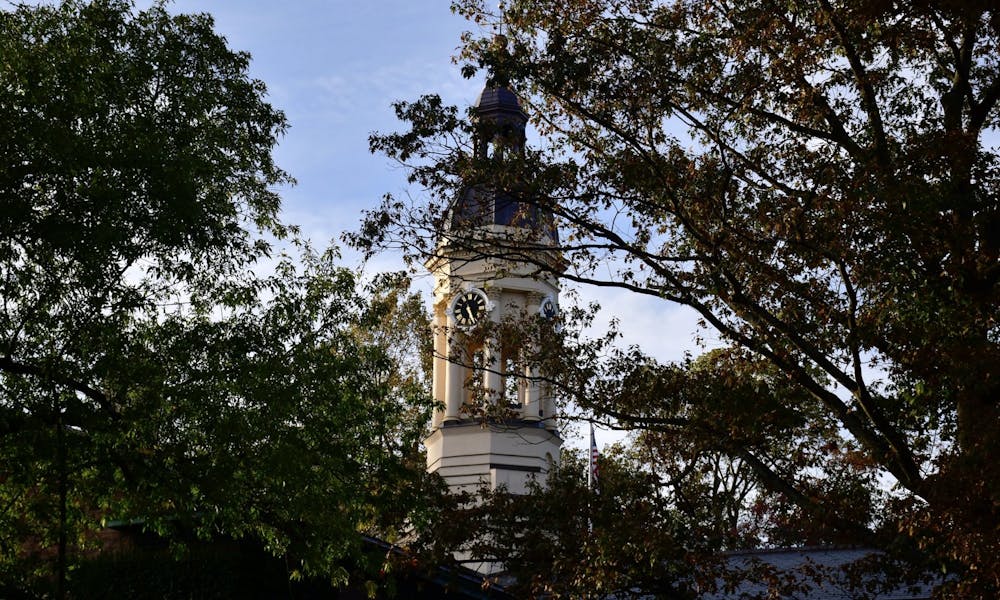The following is a guest contribution and reflects the author’s views alone. For information on how to submit an article to the Opinion Section, click here.
When I saw the primary candidates for the Young Alumni Trustee election, for which voting closes tomorrow, March 4, I got excited because many of the candidates were my friends. Yet I went from excited to disturbed after seeing how restricted the candidates’ profiles were. The profiles’ uniform brevity dehumanizes the candidate and fails to convey how they would represent the undergraduate student body
What exactly is a Young Alumni Trustee? A YAT is an elected member of Princeton’s Board of Trustees whose responsibility is to “serve the long-term interests of the University” and “provide a perspective on the issue before the Board informed by their experience as students and their knowledge of the needs, concerns, and interests of the current generation of Princeton undergraduates.”
From the University web page on the Board, the trustees have power over operating budgets, allocation of University resources, priorities for development, instructional method changes, and more. Braden Flax, Opinion columnist for The Daily Princetonian, speculated last year that though the powers of the Board of Trustees are vaguely defined, we ought to be paying more attention to the entities that run the University and, subsequently, our daily lives as students.
Clearly, the Board does hold a significant amount of power. Even if our elected YAT is only one member on the currently 37-member Board, it still gives the undergraduate population a voice in University affairs. A single voice might not be able to make a sweeping change on its own, but it can bring to light issues that may have been neglected before, much like how a third-party candidate can shift the tide of discussion in a presidential election. As such, we should take this election as seriously as any other political election.
Here is what I see when I open my ballot:

Daniel Te / The Daily Princetonian

This is what I see when I click on an individual profile, blacked out to refrain from endorsing any particular candidate:

Daniel Te / The Daily Princetonian
Immediately, I’m struck by how little these profiles tell me. The first four fields concern demographics. Candidates’ “hometown,” “major and any certificates,” and “residential college” tell me virtually nothing about them as people. To judge an individual based on their “upperclass dining affiliation,” such as an eating club, is reductive and appeals to stigmatizing stereotypes. I will not judge candidates by such characteristics.

The other fields do indeed tell me about a candidate, but they are too short to convey anything substantial. The “favorite class” can be an opportunity to choose something quirky, but it’s a small part of a person’s overall outlook. The “extracurricular activity” reduces a person to a single thing that they have done — the one thing that people might vaguely know them for. The “most meaningful Princeton experience” is the closest we get to learning about the candidate, but it is 100 words at most. I’m on the cusp of hearing their voice, and then they are cut off.
I feel like I’m reading caricatured, professional profiles of my friends. Perhaps this is colored by my experience with my first campus job at Princeton, creating weekly profiles of residents of Forbes College, for the pamphlet “The Forbes INNformer.” The most enlightening part of the job was learning what my interviewees’ “superpower[s]” were, from which I proceeded to literally caricaturize them as superheroes with a small blurb. The difference in my caricaturing is that I captured something unique about their personalities and outlooks. Learning that my friend was a “super-speed walker” made me recognize his brisk pace to life, or seeing “super-fashionista” made me recognize how much pizazz another friend put into his dress.
People are more than just their demographics, their classes, and their extracurriculars. They are a mix of beliefs and attitudes, hobbies and joys, unique qualities that scream their essence and their approach to life. I want to know who these people are, not simply what they are. There is no space for candidates to convey the “who.” These profiles fail to capture what makes the candidates human.
Without information on who these candidates are, or even what they stand for policy-wise, the election amounts to a popularity contest, a “who knows who.” Let’s consider the “upperclass dining affiliation” section. Eight of the 21 candidates, more than one-third, are members of Cap & Gown Club, and 17 of the 21 candidates, nearly 81 percent, are part of Bicker eating clubs. This is concerning for its disproportionality in relation to the student population, where only 68 percent of upperclassmen are part of eating clubs, including both Bicker and sign-in clubs. These statistics are worth considering in tandem with the investigation of former Opinion writer Liam O’Connor ’20 into the difference in demographics between Bicker and sign-in club members two years ago, but that is beside the point.

Daniel Te / The Daily Princetonian
More concerning is that the high proportion of candidates from these eating clubs may boost awareness and subsequently turnout among members, despite the fact that campaigning is banned. Candidates are required to get signatures from 50 members of the senior class to be able to be on the ballot. So it is likely that their close circles of friends are aware that they are running, which will inevitably include fellow eating club members.
For example, if half of Cap’s membership (about 89 upperclassmen) and half of Tower’s membership (157 upperclassmen) turned out to vote, which I roughly estimate would be their senior populations. This would make up 246 students, or 18.9 percent of the senior class, if we take the senior population to be roughly 1300 students, though it is likely smaller this year due to the increased number of gap-year students.
Even if only half of each of the club’s senior populations turned out to vote, that is still incredibly significant considering that the turnout rate for the 2020 general YAT election last year was only 23.67 percent, and I would expect primaries to have an even smaller voter turnout. I hesitate to say whether the ban on campaigning actually makes the election more equitable.
In the best-case scenario, perhaps the most popular person just happens to be well known for their endeavors to make Princeton a better place, but there is no guarantee of such correlation. A YAT should be a person of good character with a vision and ideas that align with the student body, and the profiles should reflect what all voters need to know to make an informed decision on this basis.
The solution to all of this is simple. Give candidates 250 more words, if not more, to explain who they are. Let them tell a longer story about themselves, about their values and what other activities mean to them. Let them describe what it means to be in their shoes, the intersectionality of their identity that can’t be captured in a few checkboxes.
Most importantly, let them have a platform, a chance to speak on the actual issues that they will be facing on the Board. After one of the most politically tumultuous years in recent history, their opinions are key in bringing about institutional change.
If they get to vote on University spending and operation, then what is their stance on divestment from fossil fuels? What’s their stance on how the University should handle the COVID-19 pandemic and its relationship with the local community? What’s their stance on how the University can address racism, after President Christopher Eisgruber ’83 declared that “confronting the realities and legacy of racism, both in our own community and in the world at large, requires commitment at every level of our institution?”
I will not vote in an election that underrepresents its candidates. These people are more than what is shown. I know that because I know many of them. I know they have bold ideas and compelling stories, but with the way the election is conducted now does not celebrate these crucial qualities. Here is to hoping that next year’s elections will do justice to the candidates’ voices.
Daniel Te is a senior in the philosophy department from Woodbridge, Va. He can be reached at danielte@princeton.edu.








